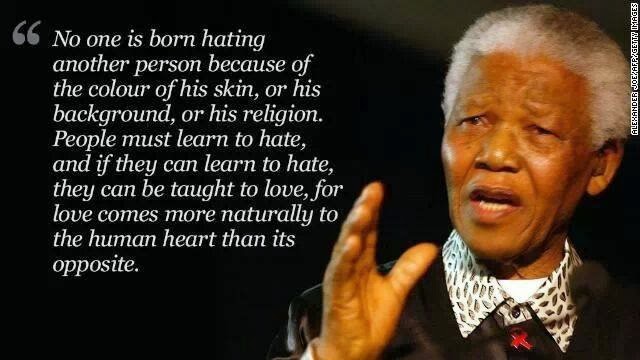The passing of Mandela was at once thoroughly foretold and unexpectedly jarring, as people recalled his graceful leadership through what appeared to be intractable racial crisis in South Africa and his ability to embody hope for moral progress in a beleaguered and often-unjust world.
"We've lost our greatest son. Our nation has lost its greatest son. Our people have lost a father," South African President Jacob Zuma said in a televised address that aired around the world. "Although we knew that this day would come, nothing can diminish our sense of a profound and enduring loss."
Tributes began flooding in almost immediately for a man who was an iconic global symbol of struggle against injustice and of racial reconciliation.
 |
| A Great Person - A Great Leader Nelson Mandela Passed Away |
Mr Mandela led South Africa's transition from white-minority rule in the 1990s, after 27 years in prison for his political activities.
He had been receiving intensive medical care at home for a lung infection after spending three months in hospital.
Announcing the news on South African national TV, President Jacob Zuma said Mr Mandela was at peace.
"Our nation has lost its greatest son," Mr Zuma said.
The man himself - president, Nobel laureate, inspiration to oppressed people worldwide - was always more complex than his super-heroic public image, as embodied in statues erected in so many capitals. He was long regarded as a terrorist by South Africa's government and its allies, and he openly embraced armed resistance as a revolutionary necessity before spending 27 years in prison.
But the Mandela being remembered was more the leader who walked free in 1990, forgave his captors and peacefully navigated his nation through what most observers - inside and outside South Africa - expected would be a civil war. The reality of multi-racial democracy has proved harder and far less equal than many expected when it arrived in 1994, but love for Mandela has never dimmed.

No comments:
Post a Comment